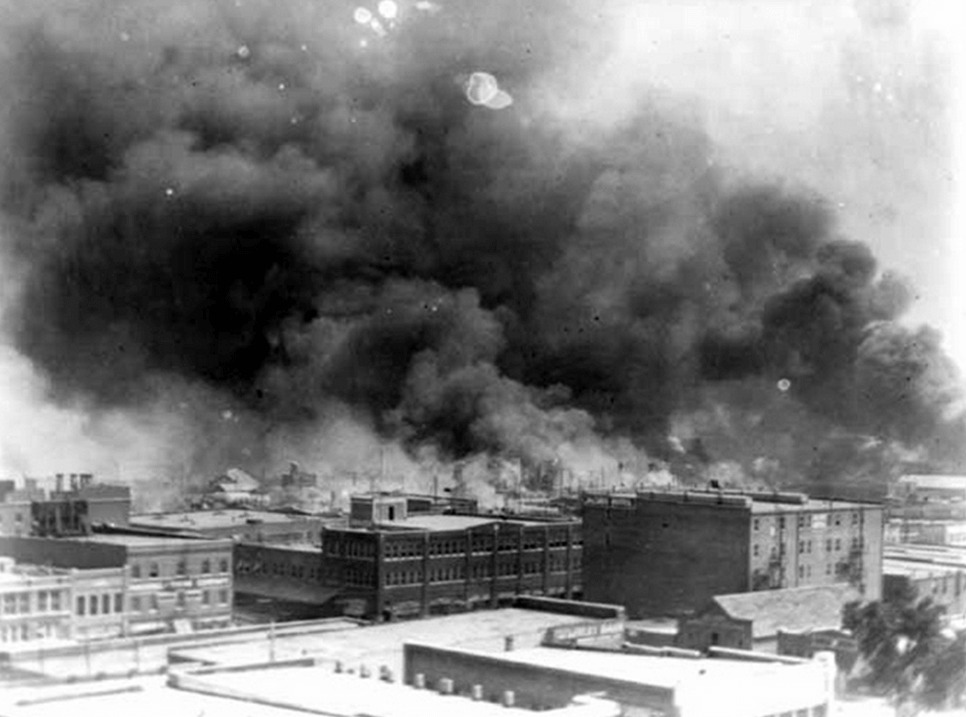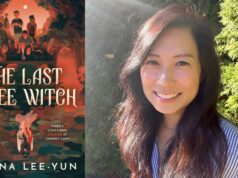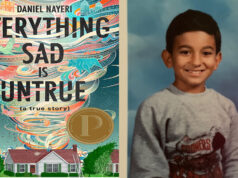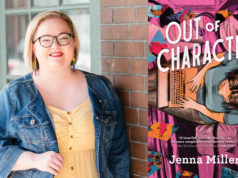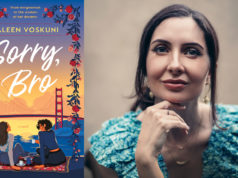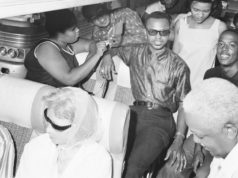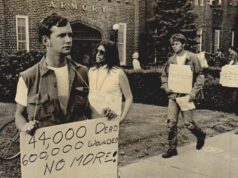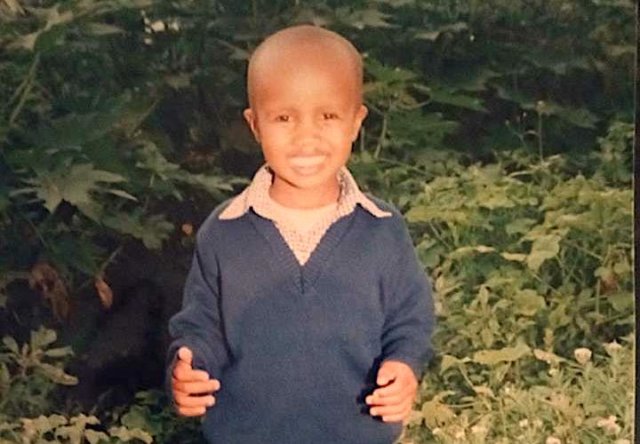

Nairobi, KENYA — My name is Brian Kasaine, a 25-year-old Kenyan who is privileged to be one of the contributing authors at NonDoc Media, Oklahoma, USA. In retrospect, I try to trace back to my dreams of being here and wrap my mind around the hills and valleys that lie in between, then and now. This is my story.
A kid in class aching to learn
On a hot afternoon in May 2007, kids are running back to class, a heavy cloud of dust propelling them. The atmosphere is filled with the prolonged sharp tinkling of the timekeeper’s bell. Dennis is his name. He is respected around this small primary school in Narok town. Here, a timekeeper is kind of a triton among the minnows. The badge pinned on his shirt pocket sets him among the few who own a classic wrist watch given by the school administration. Another “perquisite” is his freedom to saunter into the staffroom and consult on when to make the bell plink for special occasions. The rest of us walk into the staffroom too, but mostly to get flayed for poor performance, or noise making, or picking a fight with a fellow pupil who broke the tip of my pencil. I’m only 13.
I get to class and settle quickly, pulling my desk closer to my torso and letting both feet rest on the foot bar. Thrill explodes in my chest, as I’m eager for the upcoming lesson — my favorite one: composition writing, just about the only thing that makes me love school other than Sylvia, the dimpled girl in my class that all boys have a crush on; the one who arguably made me a poet at such a tender age. There’s a drawn out rustle of chairs, a shuffling of feet and an indistinct chatter as everyone settles in. The teacher walks in with a red file clutched under his armpit and a piece of chalk turning creatively between his fingers. Everyone tenses, bolt upright. It’s time to learn new words, phrases and create some characters.
Of books, dreams and imagination
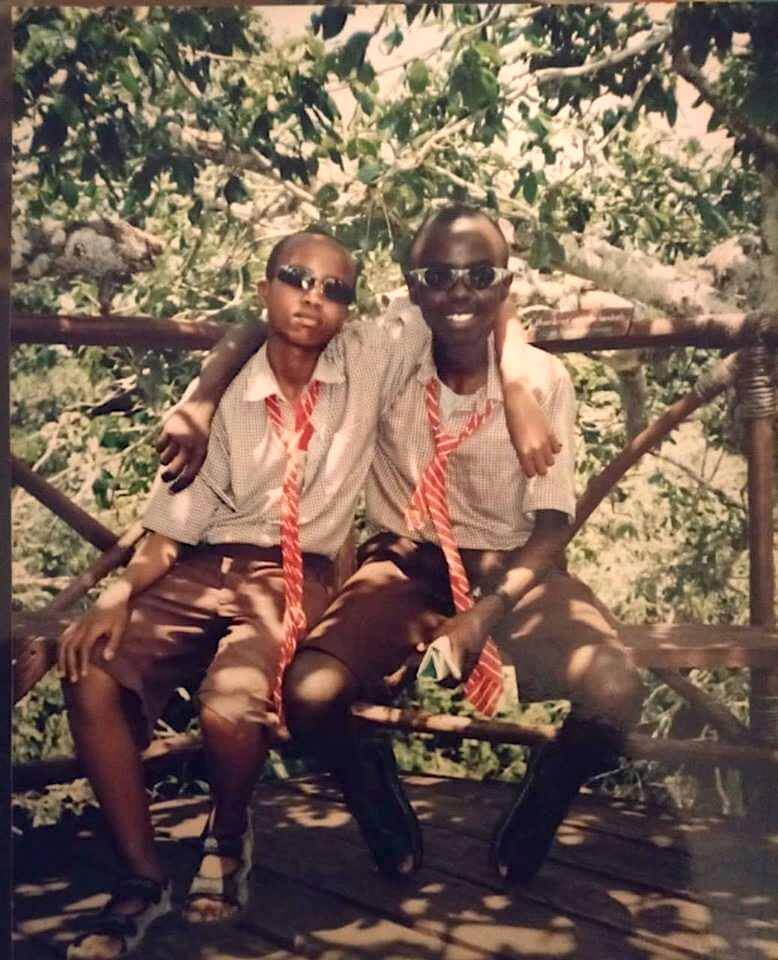
Three years later, it’s December 2010. I’m ensconced in a low-backed chair at a corner in my room, and an open dictionary enjoys the luxury of my lap. I’m flipping pages randomly, learning new words, jotting them down and using them to create sentences. Last week, I had read The Bushtrackers by Meja Mwangi for the third time, and it refined my hope and fanned my fire for becoming a great writer. It chiseled into my skull an effigy of the man I want to become.
I want to be like him — Meja Mwangi — as well as the author of Goosebumps and the Chronicles of Narnia, books that introduced me to great friends, nonexistent to ordinary eyes but real in my little skull. I’ve communed with them since I stretched an arm to shake theirs at a local library called Maasai Education Discovery. There, cradled by huge bookshelves, nostrils getting refreshed by the spell-binding smell of old oxidized pages, I fell head over heels in love with characters.
This day I’m in a blue NIKE T-shirt and a pair of black shorts. On a nearby table sits an exercise book, halfway filled with characters, twists and the struggles of my protagonist, Billy.
A carpenter finding it hard every day to eke out a living, Billy finds his pressure rising with a baby on the way. Eliza, his wife, is an adorable woman and Billy’s reason for breathing. Billy visits a local pub to drink cold beer after a long day at work. It’s a dingy space, dimly lit, in the village. While gazing at the gaps on the wooden counter, Billy gets a call that makes him leave his beer halfway. His wife has gone into labor.
That’s as far as the fictitious world stretches on my page, but in my head the story is complete. (Later I would lose the book, and the story remains locked somewhere in the depths of my head, in fragments, untold)
“Hey Brian, I see you’re still being weird,” shouts my elder brother as he enters the room. I lift my head from the dog-eared dictionary and face him. All I can do is smile, my eyes gleaming with the pride of learning new words.
“It’s a good thing. Never stop,” he tells tells me. “I long to read a book by you some day. Your stories will be read far and wide.”
His tiny palm rests on my shoulder, longing for something so real in my head yet so far away in reality that it overwhelms me.
I’m just a kid with nothing but the love of words, stories, and a dream. Breaking into the local space, as I’ve been told over and over, is like boiling the ocean, let alone thinking that one day I can be read somewhere so far away from this room I’m in. Your stories will be read far and wide. Scared, I hold on to my brother’s words and dream up all that they herald.
My brother leaves. I sit silently, fingering the back of my ear unconsciously, deep in thought. I want to be a great writer, a journalist, a poet. Just like the bard of Avon, maybe I’ll have a fancy sobriquet too. Something like “the weaver bard,” or “the love bard.”
Will I ever get there?
Meeting James Coburn of Edmond, Oklahoma
Years have elapsed, and it’s 2017. I’ve made some remarkable steps in my writing and have dexterously built a brand around my name as a writer, though faint. I’m on campus taking a course in co-operative business. Still, I yearn to be published on a global platform and be read far and wide. I carry a bag of frustrations around, and I put so much effort to keep my face from sagging because that’s the kind of weight writers carry. The writing process is hard, the criticism comes scathing, and it takes consistent fighting before a media house decides to publish you or a publisher sips coffee while smiling down on your characters.
RELATED
Silenced Cries: A poem on the Tulsa Race Riot by James Coburn
There are times you throw in the towel and let the fight in you vanish into the ether. But then you wake up in the morning and realize writing came attached to your breathing, and you just can’t fight it. You get back in the ring and touch gloves with the writers’ block; with the bleak tomorrow deep in the fog of uncertainty. This time you’ve sworn to win. You will go down trying.
My love for words leads to meeting a friend on Facebook who introduces me to another poet, James Coburn. We strike a Facebook friendship, and for some months we exchange messages. It quickly feels like I have known James for a long time. It’s like all the words I’ve ever put down clamber from the dusty place they’ve been resting to meet halfway with his meticulous words weaved for years. They meet and form a bridge that connects us despite the seemingly infinite distance that separates us. He is a writer dwelling in Oklahoma, and I am in Kenya, almost 8,700 miles or 14,000 kilometers away. Eventually, when I publish my maiden juvenilia — Around the Campfire — it’s his review that glints the book’s back cover. A man I’ve never seen face to face.
“Brian, I think you’re a good writer,” he tells me. “I advise that you try submitting your poems and stories to NonDoc Media. It’s a long shot, but I know they invite works from all over the world.”
My heart soars as my mind spirals speedily to the past when my brother said, con amore, one day you will be read far and wide.
“Why not?” I said to myself as much as him. “If they reject me, it won’t be the first time. One more throat-piercing pill won’t bury me and kick sand over my grave.”
I submit and keep my fingers crossed. The rest is history.
Still dreaming
It’s 2019 now. Several of my works have been published by NonDoc. I sit silently in my room with my laptop, updating my resume. I can’t help but remember the younger version of myself — that innocent dreamer in a classroom hanging on to every word the creative writing teacher said.
What started as imagination years ago is now reality, something I can confirm as my fingers type to add an entry to my resume: Contributing author, NonDoc Media, Oklahoma, USA.








